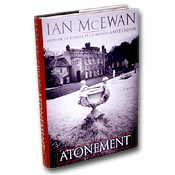
A multitude? Not really, but no matter: The one sin that’s featured in each of the stories in Richard Ford’s strong and searching new collection – adultery – is more than interesting enough to justify an entire book. Yes, there are other peccadilloes here. In A Multitude of Sins, as in his two previous story collections and five novels (including the Pulitzer-winning Independence Day), the author’s preferred demographic is well-educated, well-intentioned, and often well-heeled lawyers and real-estate agents and publishing types who believe that their “life on earth seemed as perfect as ever could be imagined,” and who are therefore likely to have a little envy, sloth, greed, and wrath on their CVs. But adultery is Ford’s strong suit, and it recurs in this new collection with dizzying variety.
If this author likes marital betrayals, it’s because they illustrate, in such complicated ways, the more profound problem of self-betrayal – the elaborate ways in which so many of us often try, in our everyday lives, to maintain a sense of our own uprightness even as we try to accommodate our wayward impulses. That conflict produces the rueful sense of disappointment that all of Ford’s characters share, and that he illuminates so well. In “Privacy,” a failing writer obsessively peeps every night at a woman in the building opposite his; when he finally meets her and sees she’s an elderly Chinese, the discovery leaves him “feeling oddly but in no way surprisingly betrayed.” In “Calling,” an upper-class New Orleans lawyer who’s left his wife and son for another man comes calling one day, in a rumpled tuxedo, hoping to take the boy duck hunting – and, perhaps, to recover something meaningful from his former life that even he can’t name. In the longest story here, “Abyss,” a feisty young female real-estate agent who’s having an affair with a colleague visits the Grand Canyon with him and realizes, too late, that she doesn’t like him at all. The real abyss she ends up falling into at the end of the story is just a symbol for a larger moral and emotional descent she’s made.
And yet whatever the biblical judgments its catchy title promises, Ford’s new book shows, if anything, a gratifyingly nuanced indulgence for his self-deluded characters; he knows better than most how to articulate the paradoxes, both benign and malignant, on which most relationships – illicit and otherwise – are founded. “Love … was a lengthy series of insignificant questions whose answers you couldn’t live without,” muses an American attorney who’s carrying on with a Canadian architect’s wife in “Dominion”; in “Charity,” a lawyer who’s learned about her ex-cop husband’s affair realizes, without rancor and indeed a little admiringly, that “the strongest force keeping them together” isn’t love but “a matching curiosity about what the character of their situation was, and the novelty that neither of them knew for sure.” That bemused sense of compromise gives Ford’s characters their depth. As they say good-bye one last time, the architect’s wife gratefully assesses her lover: “You sort of have principles.” It’s a caption that would suit pretty much every character here.
Some of these stories are overwrought. Ford likes to write big, symphonic novels, and in a few of the tales collected here, there’s too much conducting – he often tells you what you should figure out for yourself, not least what the stories are “about” (“What matters is simply a choice we make, a choice governed by time and opportunity”). The most ambitious piece in the collection is also the most flawed – the title alone, “Puppy,” should raise red flags – featuring not only a childless marriage strained by the unexpected arrival of the eponymous canine but also a flashback to a visit to Robert Frost’s cabin and not one but two highly symbolic dreams. (“Dreams always mean something obvious,” a character thinks. Too true.) A few others here – one about a man who runs into his ex-mistress’s husband in Grand Central; another, one in which a businessman’s mistress arranges for him to be confronted by an actor posing as her husband – similarly sink under the weight of their own contrivances.
Still, as in successful marriages, it’s the good parts you’ll tend to remember here; the occasional misstep – like adultery, according to that ill-fated Realtor – “erased itself once the performance was over.” Ford’s deep curiosity about the mysterious foibles that lead us into marriages and affairs alike gives this subtly observed new collection its own “strong force,” and yields a multitude of blessings.
A Multitude of Sins
By Richard Ford.
Alfred A. Knopf; 286 pages; $25.